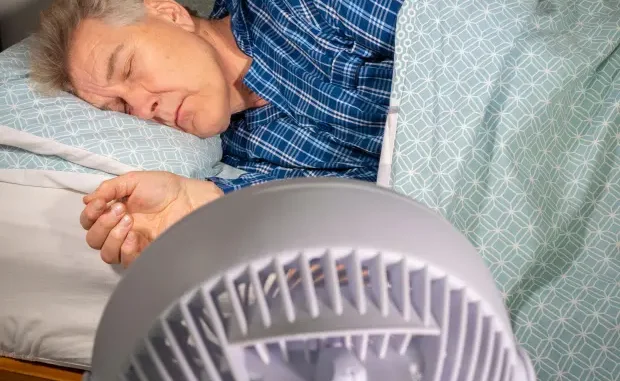
-
- Don’t aim the fan at your face—use indirect or rotating airflow.
- Keep the fan a few feet away, aimed at the room, not your body.
- Clean the fan regularly to remove dust and allergens (reddit.com, t3.com, homesandgardens.com).
- Add a humidifier if air feels too dry (homesandgardens.com).
- Dress or cover properly to avoid overcooling.
Many seniors enjoy a cool breeze at night, but having a fan aimed directly at the face can cause problems—especially for older adults.
1. Dryness & Irritation
A fan blowing on your face dries out skin, eyes, mouth, nose and throat. This can lead to irritation, nosebleeds, dry cough, sinus issues, or sore eyes (t3.com, reddit.com).2. Stiff Muscles & Neck Pain
Direct airflow can cool muscles unevenly, causing stiffness, cramps, or soreness—particularly around the neck and shoulders .3. Respiratory Risks
Fans stir up dust, pollen and allergens, potentially worsening asthma, bronchitis, or allergies (t3.com). Cooling air can also irritate airways in seniors with weakened lungs.4. Disturbed Sleep Quality
Though the noise may help some fall asleep, constant airflow can disrupt temperature regulation, leading to fragmented sleep, reduced rest, and daytime fatigue (healthline.com, waradana.com)